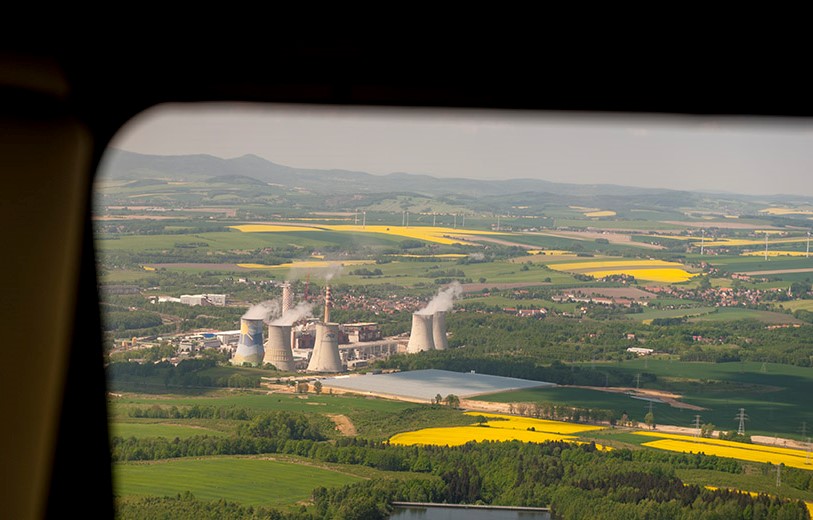The Polish government claims that the Czech Republic has agreed to withdraw a lawsuit which last week resulted in the Court of Justice of the European Union (CJEU) ordering Poland to immediately close a coal mine on its side of the border between the two countries.
However, Czech Prime Minister Andrej Babiš has denied that any deal has been reached and says that the court case is still pending.
Dzięki ogromnym staraniom Premiera @MorawieckiM udało się osiągnąć konsensus z 🇨🇿! Ustalenia zespołu negocjacyjnego skupiają na realizacji wspólnych projektów, które są ważne dla bezpieczeństwa środowiskowego – dzięki ich realizacji strona 🇨🇿 deklaruje wycofanie wniosku z TSUE.
— Michał Kurtyka (@KurtykaMichal) May 25, 2021
In the early hours of this morning, Poland’s climate minister, Michał Kurtyka, announced that “a consensus has been reached” between the two governments. He said the Czech side was persuaded to withdraw the case by plans for “joint projects which are important for environmental safety”, with Prime Minister Mateusz Morawiecki providing further details.
Prague had filed the case earlier this year, arguing that Poland violated European environmental law in granting approval for the Turów mine to continue operation.
The CJEU on Friday ruled that it should immediately cease operations as an interim measure while the court considered the case (a process that could take years). Failing to comply could result in financial penalties.
Warsaw strongly criticised the ruling, with the prime minister, Mateusz Morawiecki, saying that it endangered Polish energy security by closing a mine that is responsible for 4-7% of Poland’s electricity production. The justice minister, Zbigniew Ziobro, called the ruling “colonial and unacceptable”.
The Polish PM has said today that the government "does not foresee the closure of the mine and we will not allow it, because this could put Poland’s energy security at risk".
Instead, he wants to seek talks with Prague, which filed the case against Poland https://t.co/X9JmAvi6An
— Notes from Poland 🇵🇱 (@notesfrompoland) May 24, 2021
Yesterday, the Polish government announced that it would enter into talks with its Czech counterpart to try to find a compromise that would keep the mine open. Morawiecki met with Czech premier Andrej Babiš last night on the sidelines of a European Council summit in Brussels.
Czech environment minister Richard Brabec said on Monday that they were “ready for talks” over the mine, and had in fact wanted to hold them for “several years”, reports Reuters. “Unfortunately there had to be this ruling” to make them happen, he added.
This morning, Morawiecki revealed details of the agreement he claimed had been reached with the Czechs. “As a result, the Czech Republic agreed to withdraw its application to the CJEU,” he said, quoted by Onet.
Premier @MorawieckiM w #Bruksela: Porozumienie z Czechami zakłada wieloletnie projekty z udziałem strony polskiej w wysokości do 45 mln euro, współfinansowanie tych projektów przez stronę polską. W tym udział budżetu państwa polskiego, jak i samorządów i spółki @Grupa_PGE.
— Kancelaria Premiera (@PremierRP) May 24, 2021
Poland will invest €45 million into shared long-term investments in the region, with money coming from state and local government coffers as well as from the state-owned Polish Energy Group (PGE), which runs Turów power plant and coal mine.
PGE would also expedite the construction of an anti-filtration screen to eliminate water draining from the Czech side, as well as work on embankments to prevent particles from travelling across the border.
The government also agreed to appoint an expert commission to “investigate environmental issues” related to the open-pit mine.
Premier @MorawieckiM w #Bruksela: Zgodziliśmy się na powołanie komisji eksperckiej, która będzie badała kwestie środowiskowe związane z odkrywką. @Grupa_PGE przeprowadzi do końca inwestycje ekranu doziemnego, który będzie przynajmniej do pewnego stopnia eliminował odpływ wody.
— Kancelaria Premiera (@PremierRP) May 24, 2021
“I am optimistic that we will manage to see this through to the end,” said Morawiecki. “As a result of implementing such a plan, we will be able to say that this whole case is closed and the power plant and mine in Turów will continue to operate without hindrance.”
In response to the news, PGE’s shares jumped 4% as markets opened in Warsaw on Tuesday morning. The utilities giant faced a tumble of more than 6% after the CJEU verdict on Friday, followed by a small bounce back of 2.4% on Monday as negotiations were announced.
However, later on Tuesday morning, Czech journalist Viktor Daněk quoted Babiš as saying that he “did not agree to anything” and that the “legal action continues to apply”.
❗️”Nic jsem neodsouhlasil, žaloba dál platí.” Premiér @AndrejBabis popřel tvrzení Polska, že je Česko připravené souhlasit s dohodou kolem polského dohodu Turów. @Radiozurnal1 @CRoPlus @iROZHLAScz pic.twitter.com/yzxFgvS8Pj
— Viktor Daněk (@ViktorDanek_) May 25, 2021
The open-cast mine in question, which is also near to the border with Germany, has long been considered by authorities from neighbouring countries to be a threat to local groundwater supplies.
The Polish climate ministry renewed PGE’s licence to mine at the site in March 2020, but the Czech government accused Poland of breaching EU laws by, among others, failing to carry out an environmental impact assessment.
In December, the European Commission sided with the Czech government, which then filed a case against Poland at the CJEU in February. It is the first time one EU member state has taken another to court over a breach of environmental laws.
Poland still relies on coal to produce around 70% of its electricity, which is by far the highest proportion in the EU. The government has set a target of reducing this to as little as 11% by 2040, but argues that it needs European financial support to ensure a “just transition”.
Main image credit: M. Śmiarowski/KPRM/Flickr (under CC BY-NC 2.0)

Maria Wilczek is deputy editor of Notes from Poland. She is a regular writer for The Times, The Economist and Al Jazeera English, and has also featured in Foreign Policy, Politico Europe, The Spectator and Gazeta Wyborcza.




















